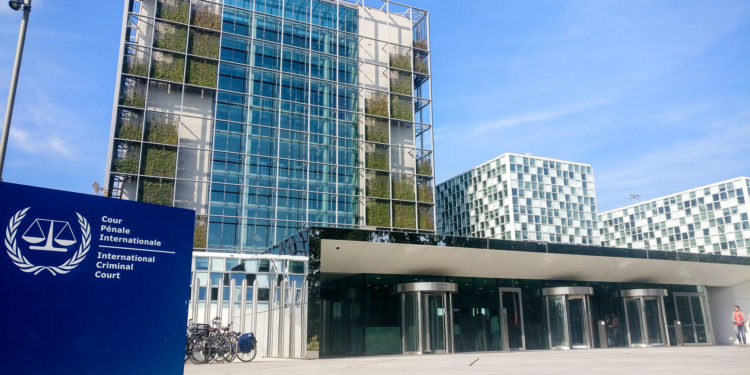More than 50,000 inhabitants of The Netherlands have signed a petition to save their internet service provider XS4ALL, which was bought by former state monopolist KPN.
XS4ALL is not only one of the best internet providers in The Netherlands, often applauded by consumers’ rights organisations for its “customer-friendlyness” – it also played a crucial role in making contemporaneous international criminal justice accessible to victims communities, the press and other relevant audiences.
XS4ALL was founded in 1993 as one of the first two internet providers in The Netherlands for the general public. As the name indicates, the founders, “techno-anarchists” from the hackers movement, wanted to realize the ideal of “access for all” to the internet.
In the same year, 1993, the United Nations Security Council decided to establish an international criminal tribunal for the former Yugoslavia with its seat in The Hague to deal with the atrocities committed during the Balkan wars. The ICTY was not only the first international war crimes court since the military tribunals in Nuremberg and Tokyo in the aftermath of WW II. It was also the first ever such international tribunal with a seat far away from the scenes of the crimes, in another country, in The Netherlands.
This created difficulties for journalists, NGO representatives and other interested citizens in the former Yugoslavia who wanted to follow the ICTY proceedings in The Hague. Travel to The Netherlands and staying in The Hague is expensive, especially for people whose countries are impoverished by war, and there could also be difficulties to obtain visas.
Frank Tiggelaar, an IT technician from Amsterdam who privately participated in humanitarian initiatives to help victims in the war-torn Yugoslavia, saw that difficulty and thought of a solution. Hearings in the courtrooms in The Hague were already filmed by the ICTY, for its own archives and for retransmission via a closed-circuit television system within the building.
Pioneer Tiggelaar thought of using the TV signal from the courtroom to “webcast” it, to make it available via the internet to people in the former Yugoslavia. And XS4ALL made the internet connection available for free, and the necessary bandwidth, to make the webcasting possible.
Frank first webcast the ICTY via the website of his own NGO, domovina.net, in 1998. It was not only a private initiative, but also largely a one-man show: Frank spent countless hours of his spare time in a small room next to the main entrance of the ICTY where he had piled up the servers to give “access for all” to the courtroom proceedings. Only he would find his way through the countless wires. He was helped by some Dutch and ex-Yugoslav volunteers. In his flat in Amsterdam, which also hosted domovina servers, he sometimes received threats from nationalist circles. (There is a Yugoslav diaspora and a Yugoslav mafia in The Netherlands.)
In 2000 the ICTY put a link to domovina.net on its own UN website. That way the webstreaming that had started as the idea of one man and as a private initiative, became kind of “official”. Later the webstreaming of international court hearings in The Hague for the benefit of audiences in countries like Sierra Leone, Liberia or DR Congo became the norm. Just a bit more than 20 years after Frank Tiggelaar first implemented his idea it has become the standard for international criminal courts and tribunals.
Frank and XS4ALL were thanked for their contributions and volunteer work by then ICTY president Patrick Robinson during a little ceremony in the ICTY press briefing room in 2009:
http://www.icty.org/x/file/Press/Statements%20and%20Speeches/President/090506_pdt_robinson_launch_web_crd.pdf
CNN also once described how it all began:
http://edition.cnn.com/TECH/computing/9807/02/balkans.idg/index.html
Journalists worldwide following international justice issues will be eternally grateful to Frank. He died, only 61 years of age, in 2012 in Amsterdam.






